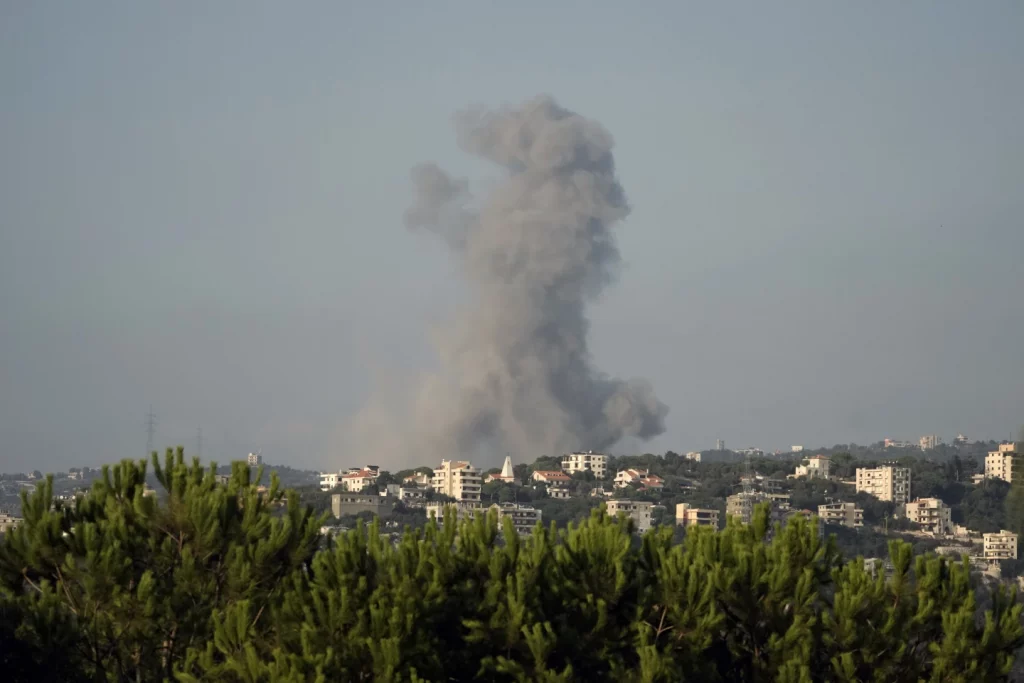Beirut: Syrian insurgents entered the central city of Hama Thursday after days of intense clashes with government forces as they push forward with their week-long offensive that brought large parts of Syria under their control.
The Syrian army said it has withdrawn from Hama after insurgents broke through its defences marking another setback for President Bashar Assad, days after losing the country’s largest city.
The Syrian army said it redeployed from Hama and took positions outside the city to protect the lives of civilians.
The insurgents’ next target is likely to be the central city of Homs, the country’s third largest. Homs, which is about 40 kilometres south of Hama, is the gate to the capital Damascus, President Bashar Assad’s seat of power as well as the coastal region that is a base of support for him.
Abu Mohammed al-Golani, the de facto leader of the Syrian insurgency announced in a video message that the insurgency reached the city of Hama in a “conquering that is not vengeful, but one of mercy and compassion.”
The capture of Hama, Syria’s fourth largest city, is another blow to Assad days after insurgents captured much of the northern city of Aleppo, the country’s largest city.
Al-Golani, leader of the most powerful insurgent group in Syria the Hayat Tahrir al-Sham, publicly toured Aleppo city Wednesday. He spoke about Hama on Thursday from an undisclosed location in what appears to be a video filmed with a mobile phone.
On Thursday morning, Syrian insurgents said they entered Hama after three days of intense clashes with government forces on its outskirts, part of an ongoing offensive.
The Syrian army said in a statement later that a number of troops were killed after resisting the insurgents for days. It accused the attackers of relying on suicide attacks to break through the defences of the city.
The Britain-based Syrian Observatory for Human Rights — an opposition war monitor — said after fierce battles inside Hama, opposition gunmen now control the police command headquarters in the city as well as the sprawling air base and the central prison from where hundreds of detainees were set free.
“If Hama falls, it means that the beginning of the regime’s fall has started,” the Observatory’s chief, Rami Abdurrahman, told The Associated Press before the city’s capture.
Hama is one of the few cities that remained under full government control during Syria’s conflict, which broke out in March 2011 following a popular uprising. Its capture is a major setback for President Bashar Assad.
The offensive is being led by the jihadi group HTS as well as an umbrella group of Turkish-backed Syrian militias called the Syrian National Army. Their sudden capture of the northern city of Aleppo, an ancient business hub, was a stunning prize for Assad’s opponents and reignited the conflict which had been largely stalemated for the past few years.
Aleppo’s takeover marked the first opposition attack on the city since 2016, when a brutal Russian air campaign retook it for Assad after rebel forces had initially seized it. Intervention by Russia, Iran and Iranian-allied Hezbollah, and other militant groups has allowed Assad to remain in power.
The latest flare-up in Syria’s long civil war comes as Assad’s main regional and international backers, Russia and Iran, are preoccupied with their own wars.
Tens of thousands of people have been displaced by the renewed fighting, which began with the surprise opposition offensive November 27.
The insurgents claimed on their Military Operations Department channel on the Telegram app Thursday that they have entered Hama and are marching toward its centre.
“Our holy warriors are fighting fierce battles in Hama neighbourhoods with forces of the criminal regime,” the channel quoted a local commander identified as Maj. Hassan Abdul-Ghani as saying.
Hama is a major intersection point in Syria that links that country’s centre with the north as well as the east and the west. It is about 200 kilometres north of the capital, Damascus, Assad’s seat of power. Hama province also borders the coastal province of Latakia, a main base of popular support for Assad.
The city’s name is known for the 1982 massacre of Hama, one of the most notorious in the modern Middle East, when security forces under Assad’s late father, Hafez Assad, killed thousands to crush a Muslim Brotherhood uprising.
AP
